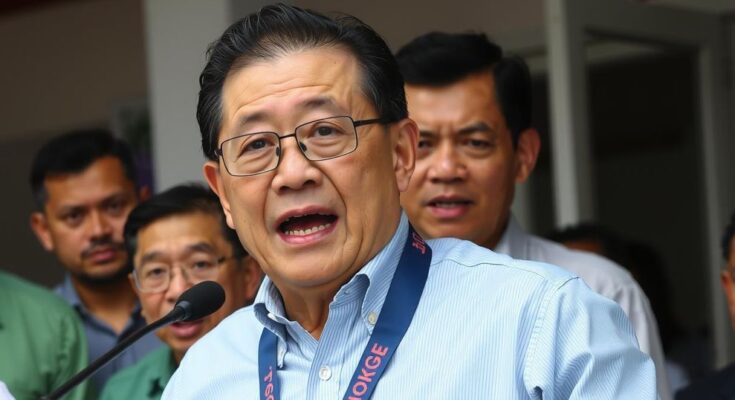Lim Kimya, a Cambodian opposition politician and fierce government critic, was shot dead in Bangkok shortly after his arrival. A member of the CNRP, he was known for his stance against government corruption and human rights violations. His assassination raises concerns for the safety of Cambodian activists in exile amid increasing threats from authorities.
Lim Kimya, a prominent figure within the Cambodian opposition, was fatally shot in Bangkok, Thailand, on Tuesday. A member of the Cambodia National Rescue Party (CNRP) and an outspoken critic of the government, Lim voiced concerns about government corruption and human rights abuses. His assassination occurred shortly after his arrival in the capital, sparking accusations and discussions surrounding safety for Cambodian dissenters abroad. Lim was known for his fearless challenges to Prime Minister Hun Sen, including allegations of partisan favoritism in humanitarian efforts by the Cambodian Red Cross, under the leadership of Hun Sen’s wife. Despite facing immense risk, Lim returned to Cambodia to participate in politics after years abroad, indicating his deep commitment to the nation’s democratic values. His sudden death has highlighted the peril facing Cambodian activists in exile.
The political climate in Cambodia, especially under Prime Minister Hun Sen, has been marked by significant repression of opposition voices. The CNRP, Lim Kimya’s party, experienced a notable electoral success in 2013 but was subsequently dissolved by the government in 2017, effectively eliminating significant political competition. Activists, including Lim, have often faced persecution and violence, particularly when voicing criticism against the ruling government, making their presence in foreign countries like Thailand precarious. Lim Kimya’s assassination signals both the extent of these threats and the violence directed at dissenting voices in the region, raising international concern for human rights.
In conclusion, the assassination of Lim Kimya underscores the grave dangers faced by opposition figures in Cambodia and abroad. Lim’s dedication to advocating for democratic ideals and his criticisms of the ruling party reflect a broader struggle for political rights in Cambodia. His death serves as a tragic reminder of the potential consequences of challenging a powerful regime and highlights the urgent need for protective measures for activists worldwide.
Original Source: www.rfa.org




